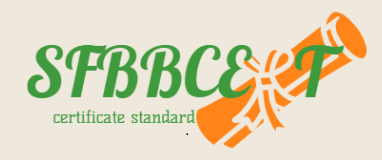
If you or a family member has food allergies, dining out can be challenging. Parents, especially mothers, often worry about their allergic child eating outside the home. However, being aware of key guidelines and simple precautions can help ensure safety. Let’s walk through what you need to know under the SFBBCERT framework.
Legal Responsibilities of Food Businesses
There are legal requirements for food-related businesses to provide information about allergens in the foods they sell. According to food regulations, if any of the 14 major allergens are used as ingredients in food or drink, businesses must inform consumers. These allergens include:
-
Celery
-
Cereals containing gluten (e.g., barley and wheat)
-
Crustaceans (e.g., shrimp and crab)
-
Eggs
-
Fish
-
Milk
-
Mustard
-
Peanuts
-
Sesame seeds
-
Soya
-
Sulphur dioxide and sulphites
-
Tree nuts (e.g., almonds, hazelnuts, walnuts, cashews, pistachios)
If you are allergic to any of these, always check food labels or ask staff for specific allergen information. Following allergy safety practices in families—especially alongside SFBBCERT guidelines—helps prevent allergic reactions and supports family health.
Allergen Information on Products
Allergen details may be presented in different ways depending on the type of food and business:
Packaged Foods
The presence of the 14 allergens must be clearly indicated on packaging—using bold, colored, or italic fonts to highlight allergenic ingredients.
Non-Packaged Foods (e.g., bakeries, butcher shops)
These food businesses must provide allergen information for all items containing any of the 14 major allergens.
While food labeling provides more clarity to consumers, it is not a substitute for direct communication between consumers and food businesses about allergen needs.
Eating Out
When dining out or ordering food, restaurants and cafes must provide allergen information. This may be listed on the menu or available upon request. Ask staff directly about allergenic content in your chosen meals.
If a business fails to meet allergen guidance, you can report it through the Food Issue Reporting Tool.
Tips for Teens and Young Adults
Precautionary allergen labels warn customers of unintentional allergen presence due to cross-contamination, such as:
-
“May contain [allergen]”
-
“Not suitable for those with allergy to X”
Cross-contamination can occur anywhere in the supply chain. Though “may contain” warnings are not legally required, businesses must ensure food is safe to eat and provide enough information for consumers to make informed choices.
Vegan Foods and Allergens
Choosing a vegan lifestyle often stems from ethical, environmental, or nutritional reasons. However, the term “vegan” is not legally defined in food law. A “vegan” label is not the same as “free from [allergen]” labeling. For example, a “dairy-free” product is legally guaranteed to be free from milk, making it safe for those with milk allergies.
A vegan claim means no animal-derived ingredients were intentionally used, but unintentional contamination is still possible. This risk must be disclosed, especially for allergens like:
-
Crustaceans
-
Molluscs
-
Fish
-
Milk
-
Eggs
Businesses labeling a product as vegan should include precautionary statements like “may contain” if there’s a contamination risk. This helps allergic consumers make safer choices.
The Vegan Society allows its trademark on products with allergen warnings if based on formal risk assessments.
If a vegan-labeled product causes a reaction due to hidden allergens and lacked a “may contain” warning, it may breach food laws.
Check Vegan Labels Carefully
Always read labels to ensure the product is safe, even if marked “vegan.” When ordering vegan meals out, clearly communicate your allergies or intolerances.
The Food Standards Authority has published guidelines for consumers explaining the difference between “free from” and “vegan” claims.
Ordering Allergen-Safe Meals
When eating out or ordering food, always review menus online or call ahead to check allergen safety. Clearly explain your allergies and give examples of foods to avoid.
If the staff lacks knowledge about allergen safety, ask to speak with someone more informed—such as a manager.
Ask these questions:
-
Does the business offer allergen-safe meals?
-
If not, can staff prepare a suitable dish?
-
How is cross-contamination prevented in the kitchen?
-
Are recipes or ingredients changed at the last minute?
Be extra cautious with complex dishes that might hide allergens. While businesses must provide allergen information, they are not required to offer allergen-free alternatives. If you’re unsure about the staff’s awareness, choose a different place.
Restaurants
Speak clearly to the staff or manager about your allergy when you arrive or during booking. Confirm whether they can meet your dietary needs and avoid cross-contamination from glazes, sauces, or oils.
Choose restaurants where staff take your allergy seriously.
Takeaway Orders
Takeaway, remote sales, and online orders fall under distance selling. Allergen information must be available before purchase and upon delivery—via website, app, menu, or verbally by phone.
When ordering for multiple people, request labeled meals and packaging to identify which dish is safe for you.
Preparing Allergy-Safe Meals at Home
Cooking for someone with allergies can be stressful if you’re not used to it. Removing allergens from the plate is not enough—trace amounts can trigger reactions. Plan and prepare carefully:
-
Ask your guest (or the child’s caregiver) what is safe and unsafe
-
Keep allergen-free food separate
-
Check packaged food ingredient lists
-
Avoid garnishes or decorative toppings
-
Use allergen-free alternatives when possible
-
Your guest can help plan a safe meal
Thoroughly clean surfaces and utensils to eliminate residual allergens and prevent cross-contamination.
Allergy Alerts
The FSA works closely with local authorities, the food industry, and consumer organizations to prevent the spread of misleading allergen information.
You can sign up for allergy alerts and receive emails or texts if a product you’ve purchased is recalled due to allergen risks.
Allergy Research
The SFBBCERT allergy and intolerance research program aims to identify risk factors, increase public awareness, and provide ongoing scientific updates. We are committed to delivering accurate, useful, and up-to-date allergen information for both consumers and food industry professionals.

No comment